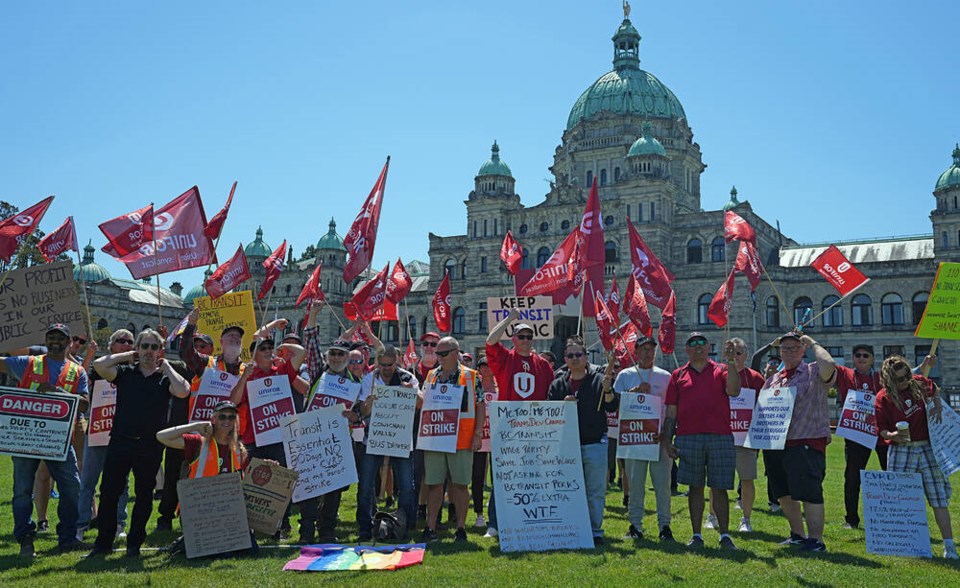“The members made it perfectly clear that the recommendations didn’t go far enough in their view,” Unifor’s national representative said

Transit workers in the Cowichan Valley voted on Sunday against a proposed agreement that would end their five-month-long strike, saying their demands were not adequately met.
Unifor national representative Gavin Davies said all the members of Local 333 HandyDART who voted opposed the deal, while 85 per cent of Local 114 members voted against it. About 80 per cent of Unifor transit members in Duncan voted, he said.
The deal was achieved with the help of a government-appointed mediator.
“The members made it perfectly clear that the recommendations didn’t go far enough in their view,” Davies said, adding that the agreement, while it included improvements to the availability of washrooms, failed to provide adequate time for operator breaks.
He also said HandyDART operators, who make less than those who operate regular buses, had asked for pay parity with conventional drivers but saw no improvement in the proposed deal.
Transdev, which operates the valley’s system under a contract with B.C. Transit, said in a statement that the proposal included a top-wage-tier increase for conventional drivers of 16.42 per cent over four years and an 18.85 per cent increase for HandyDART drivers.
The current rate for an operator in Duncan is $31.24 an hour, while in Victoria, it’s $37.96.
The transit company said in a statement that it was disappointed that Unifor members rejected the settlement proposal, adding the deal included “significant improvements to working conditions and a wage offer that exceeds the prevailing standards for comparable roles across the region and province.”
Transdev said the new deal would have meant that a bus driver in the Cowichan system would earn $7.85 more per hour than one in Victoria. The France-based company said that under the proposal, a Cowichan driver at the top rate would earn $76,000 a year in 2027.
Davies said the $7.85 more per hour number applies to an operator’s pay upon hiring and doesn’t account for the five-year stepped pay increases earned by B.C. Transit operators in the province’s capital, meaning the highest earners would still make more than those in Cowichan.
The proposal included a stepped increase for Cowichan drivers, but Davies said it was only three levels and didn’t compare to the one already implemented in Victoria.
Emily Watson, senior vice-president of Transdev Western Canada, said in the statement that her company “approached this mediation with openness and responsibility,” adding that they believed it was “both generous and sustainable.”
The transit company said it “remains committed to reaching a fair agreement that supports its employees while safeguarding the continuity and reliability of this public mission.”
Davies said he’s not sure what the next steps are for the union, adding that it’s possible an arbitrator could be introduced, but he doesn’t think the province will legislate the operators back to work.
“At the end of the day, there’s not much of a difference from what [members] rejected weeks ago,” he said, noting that he felt the proposed step rate was a “step backwards.”
The job action reached 137 days on June 27, surpassing the 2022 Whistler Sea-to-Sky labour dispute and making it the longest transit strike in the province’s history.
[email protected]